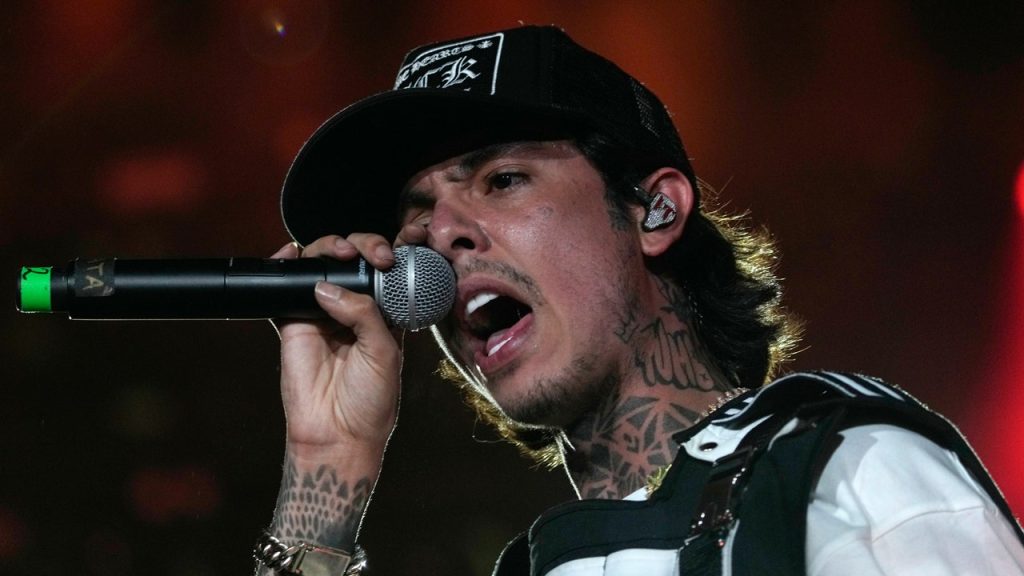The escalating tensions within the Mexican drug cartel landscape have spilled over into the music industry, as renowned regional Mexican singer Natanael Cano and several other artists find themselves under threat from a faction of the Sinaloa Cartel, prompting authorities to offer state protection. A banner, purportedly from “Jalisco Matasalas,” a group affiliated with the “Chapitos” faction of the cartel, publicly accused the musicians of financially supporting a rival gang known as the “Salazares.” The menacing message, discovered hanging from a school in Sonora, warned the artists to “mind their own business” or face fatal consequences. This incident underscores the precarious position of musicians, particularly those within the corrido genre, who often find themselves entangled in the complex web of cartel rivalries.
Corridos, traditional ballads originating from northern Mexico, have historically chronicled tales of outlaws, social injustices, and the harsh realities of life on the border. While not inherently promoting violence, the genre’s frequent depiction of drug trafficking and cartel figures has drawn criticism and placed corridos singers in a vulnerable position. The current resurgence in popularity of corridos and other regional Mexican music genres, fueled by artists like Cano and Peso Pluma who blend traditional styles with modern influences like trap music, has further amplified the genre’s visibility, potentially exacerbating the risks for artists who navigate this often dangerous territory.
The threats against Cano and his contemporaries are not isolated incidents but rather part of a broader pattern of intimidation and violence targeting musicians who are perceived as aligning with or challenging cartel interests. Peso Pluma, another rising star in the regional Mexican music scene, faced similar threats in 2023, forcing him to cancel a concert in Tijuana after a rival cartel warned him against performing. These actions demonstrate the cartels’ attempts to exert control over the narrative and silence voices that they deem threatening. The increasing popularity of regional Mexican music, evident in its exponential growth on streaming platforms like Spotify and YouTube, may be perceived as a challenge to their authority, making artists targets for intimidation and violence.
The situation highlights the broader challenges facing Mexico as it grapples with pervasive cartel violence and its impact on various aspects of society, including the cultural sphere. The incident involving Cano and the other musicians follows a period of intensified conflict within the Sinaloa Cartel, stemming from the capture of Ismael “El Mayo” Zambada, a key figure in the organization. This internal power struggle has destabilized the region, leading to a surge in violence and further entrenching the cartel’s influence. The threats against the artists represent a spillover effect of this conflict, demonstrating how cartel disputes can extend beyond the immediate criminal underworld and impact other sectors.
The offer of state protection to Cano and the other threatened artists reflects the Mexican government’s recognition of the dangers they face. However, the effectiveness and scope of such protection remain uncertain. Previous attempts to regulate or ban narcocorridos, a subgenre of corridos that explicitly glorifies drug culture and cartel figures, have met with limited success. The underlying issue lies in the cartels’ deep-rooted influence and their willingness to use violence to achieve their objectives. Moreover, the complex relationship between the music industry, the artists, and the cartels makes it challenging to implement effective protective measures. Some artists may even cultivate relationships with cartels for protection or promotion, further complicating the situation.
The threats against Natanael Cano and his fellow musicians underscore the vulnerability of artists operating within a social and political landscape dominated by powerful criminal organizations. While the offer of state protection is a necessary step, it is likely insufficient to address the broader problem of cartel influence and its impact on freedom of expression. A more comprehensive approach requires tackling the root causes of cartel violence, including corruption, poverty, and the demand for illicit drugs. Until these underlying issues are addressed, artists who dare to challenge or even inadvertently become entangled in cartel affairs will continue to face risks. The incident serves as a sobering reminder of the precarious state of artistic freedom in regions grappling with the pervasive influence of organized crime.










